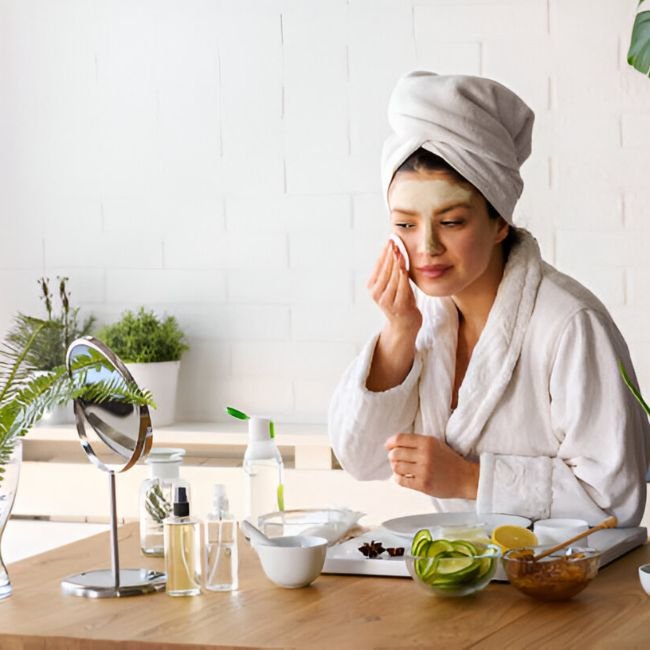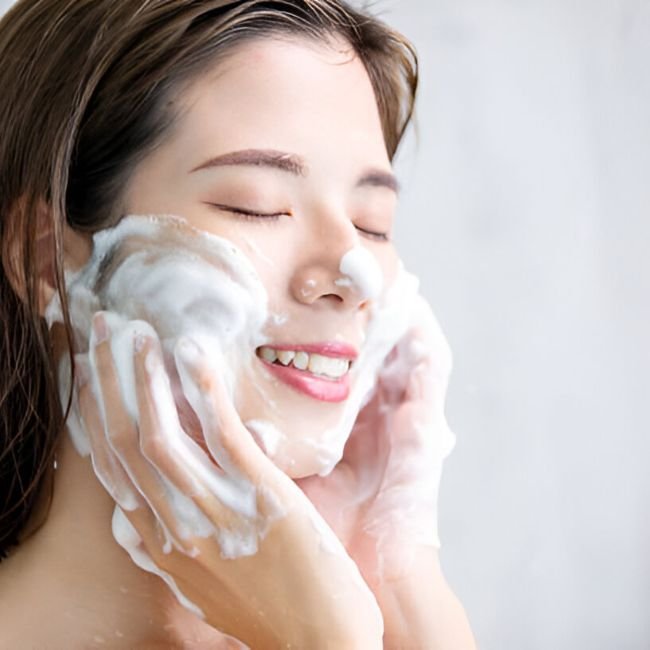Aging is a natural process, and so is the transformation our skin undergoes as we grow older. The importance of taking care of our skin becomes even more pronounced as we age. In this comprehensive guide, we’ll explore the best skincare practices for aging skin, ensuring you maintain a youthful glow and healthy complexion.
Understanding Aging Skin
What Happens to Skin as We Age?
As we age, our skin undergoes several changes. The production of collagen and elastin slows down, leading to a loss of firmness and elasticity. Our skin also becomes thinner and drier due to a decrease in natural oils, making it more prone to wrinkles, fine lines, and age spots.
Common Signs of Aging Skin
Some common signs of aging skin include wrinkles, fine lines, sagging, dryness, and a dull complexion. You may also notice age spots, enlarged pores, and a rough texture. Understanding these signs is the first step towards addressing them effectively.
Building a Skincare Routine
The Basics of a Good Skincare Routine
A good skincare routine for aging skin should include cleansing, exfoliating, moisturizing, sun protection, and targeted treatments. Consistency is key, and it’s essential to use products suitable for your skin type and concerns.
Tailoring Your Routine for Aging Skin
For aging skin, focus on products that boost hydration, improve elasticity, and reduce the appearance of wrinkles. Look for ingredients like hyaluronic acid, retinol, peptides, and antioxidants.
Cleansing
Why Cleansing is Crucial
Cleansing removes dirt, oil, and impurities from the skin, preventing clogged pores and dullness. It also prepares your skin to absorb other skincare products more effectively.
Best Cleansers for Mature Skin
Opt for gentle, hydrating cleansers that do not strip the skin of its natural oils. Creamy cleansers and micellar water are great options for mature skin.
Exfoliating
The Role of Exfoliation in Aging Skin
Exfoliation helps remove dead skin cells, promoting cell turnover and a smoother complexion. It can also enhance the effectiveness of other skincare products.
How Often Should You Exfoliate?
For aging skin, exfoliating 1-2 times a week is generally sufficient. Over-exfoliating can lead to irritation and dryness.
Best Exfoliants for Aging Skin
Choose gentle exfoliants like lactic acid, glycolic acid, or enzyme-based exfoliants. Avoid harsh scrubs that can damage the skin.
Moisturizing
Importance of Hydration
Hydration is crucial for maintaining skin elasticity and plumpness. As we age, our skin tends to become drier, making moisturizing an essential step in our skincare routine.
Choosing the Right Moisturizer
Look for moisturizers with hydrating ingredients like hyaluronic acid, glycerin, and ceramides. Products with antioxidants and peptides can also help improve skin texture and firmness.
Top Moisturizers for Aging Skin
Some top-rated moisturizers for aging skin include CeraVe Moisturizing Cream, Olay Regenerist Micro-Sculpting Cream, and Neutrogena Hydro Boost Water Gel.
Sun Protection
Why Sun Protection is Essential
Sun exposure is one of the leading causes of premature aging. Protecting your skin from UV rays can prevent wrinkles, age spots, and other signs of aging.
Best Sunscreens for Aging Skin
Use broad-spectrum sunscreens with an SPF of at least 30. Mineral sunscreens with zinc oxide or titanium dioxide are gentle and effective for mature skin.
Targeted Treatments
Serums and Anti-Aging Products
Serums are concentrated treatments that target specific skin concerns like wrinkles, dark spots, and loss of firmness. Incorporate serums with ingredients like retinol, vitamin C, and peptides into your routine.
Ingredients to Look For
Key anti-aging ingredients include retinoids, hyaluronic acid, vitamin C, peptides, and niacinamide. These ingredients can help boost collagen production, hydrate the skin, and reduce the appearance of fine lines.
How to Apply Targeted Treatments
Apply serums and treatments after cleansing and before moisturizing. Use a gentle patting motion to help the product absorb better into the skin.
Diet and Hydration
How Nutrition Affects Your Skin
A healthy diet can significantly impact the appearance of your skin. Nutrient-rich foods provide the building blocks for healthy skin cells and help combat signs of aging.
Foods That Promote Healthy Skin
Incorporate foods rich in antioxidants, vitamins, and healthy fats into your diet. Examples include berries, leafy greens, fatty fish, nuts, and seeds.
Importance of Staying Hydrated
Drinking plenty of water keeps your skin hydrated from the inside out. Aim for at least 8 glasses of water a day to maintain optimal hydration levels.
Lifestyle Changes
Impact of Lifestyle on Skin Aging
Lifestyle factors like smoking, excessive alcohol consumption, and lack of sleep can accelerate skin aging. Adopting healthy habits can help keep your skin looking youthful.
Habits to Adopt for Better Skin
Get enough sleep, manage stress, avoid smoking, limit alcohol intake, and exercise regularly. These habits promote overall health and improve skin appearance.
Professional Treatments
When to See a Dermatologist
If over-the-counter products aren’t giving you the desired results, it might be time to see a dermatologist. They can recommend professional treatments tailored to your skin’s needs.
Popular Anti-Aging Procedures
Common anti-aging procedures include chemical peels, microdermabrasion, laser treatments, and injectables like Botox and fillers. These treatments can provide more dramatic results than home care alone.
Natural Remedies
Benefits of Natural Ingredients
Natural ingredients can be gentle and effective for aging skin. They are often less likely to cause irritation and can be a good option for those with sensitive skin.
DIY Skincare Recipes for Aging Skin
Try homemade masks and treatments using ingredients like honey, avocado, yogurt, and aloe vera. These can nourish and rejuvenate the skin naturally.
Products to Avoid
Ingredients That Can Harm Aging Skin
Avoid products with harsh chemicals, alcohol, and fragrances that can irritate and dry out aging skin. Look for gentle, hydrating formulas instead.
How to Read Product Labels
Check the ingredient list on skincare products and avoid those with harmful additives. Look for labels that indicate the product is hypoallergenic, non-comedogenic, and suitable for sensitive skin.
Myths About Aging Skin
Common Misconceptions Debunked
There are many myths about aging skin, such as the belief that only expensive products are effective. In reality, many affordable products can provide excellent results.
Understanding the Truth About Skin Aging
Skin aging is a complex process influenced by genetics, lifestyle, and environmental factors. A holistic approach to skincare can help you manage and reduce the signs of aging effectively.
Conclusion: Best Skin Care for Aging Skin
Taking care of aging skin involves a combination of proper skincare, healthy lifestyle choices, and sometimes professional treatments. By understanding the changes your skin goes through and choosing the right products and practices, you can maintain a youthful, healthy complexion. Remember, it’s never too late to start taking better care of your skin.
FAQs
What is the best skincare routine for aging skin?
A good routine includes cleansing, exfoliating, moisturizing, sun protection, and using targeted treatments like serums.
Can diet affect how my skin ages?
Yes, a nutritious diet can promote healthy skin and slow down the aging process.
Are expensive skincare products worth the investment?
Not always. Many affordable products contain effective ingredients that can benefit aging skin.
How often should I exfoliate my aging skin?
Exfoliating 1-2 times a week is usually sufficient for aging skin.
What are the best natural remedies for aging skin?
Natural remedies like honey, avocado, yoghurt, and aloe vera can nourish and rejuvenate the skin.




